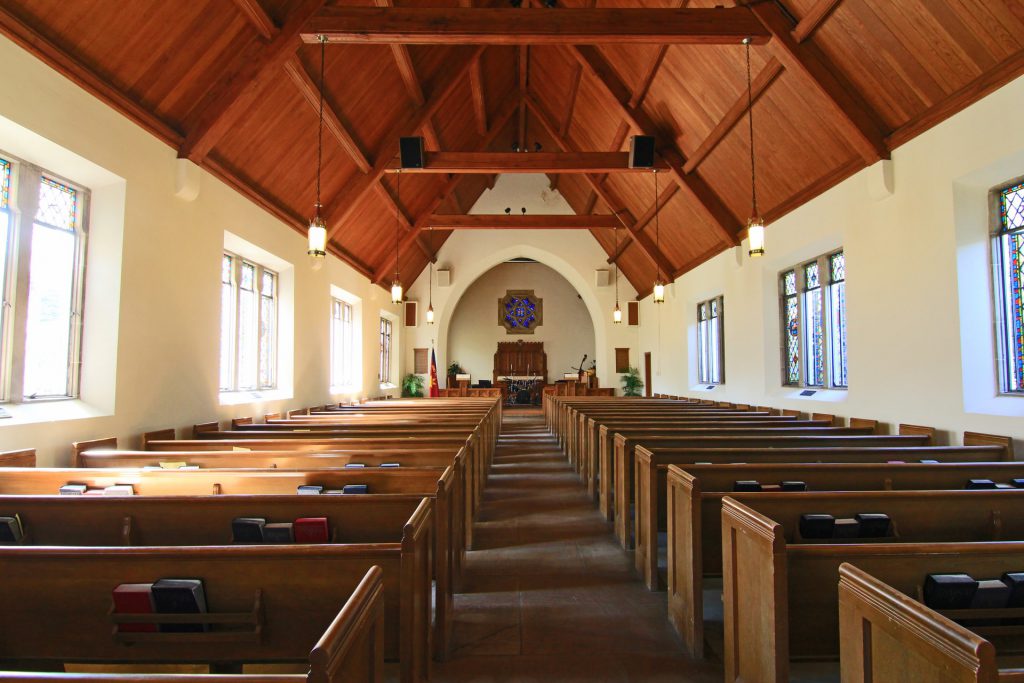
Published May 5, 2021
With the news of the Gallup Poll indicating dramatic two-decade decline in church membership, there is no shortage of opinion and commentary on what those figures portend for the future of Christianity in America.
The poll’s findings could be interpreted in a number of ways. One is to see the reality of secularism making serious inroads into large swaths of American life. Another is to lament the loss of a Christian consensus that, despite grievous historical sins, laid the foundation for America’s moral ecosystem at its founding.
Yet another way is to celebrate the loss of “cultural Christianity” as a gain for gospel purity. According to this viewpoint, the dross of cultural Christianity needs to be exposed for what it truly is: a framework that misappropriated Christianity to consolidate cultural power.
Without a doubt, there are elements of truth to this last interpretation. Everyone reading this article could point to myriad examples of Christianity being used for something other than its promise of salvation. Whether the church’s support of white supremacy, the public figure using Jesus as a political dogwhistle, or the local candidate kowtowing to the large church in town in order to make all the proper appearances, the criticism is valid. Desiring the morality or cultural status that may result from Christianity—while ignoring the gospel at the heart of it—is worth critiquing.
I’ve warned against the dangers of over-realized eschatologies that accompany movements like theonomy. So too the decline of Christianity and its influence on culture are complex. We should resist the temptation to celebrate or exaggerate its decline. Faithfulness in the culture requires simultaneously insisting on orthodox Christianity’s contribution to the common good and refusing to allow influence over the common good to be a measure of that same orthodoxy’s credibility.
There are two problems, however, with the argument that we should welcome the death of the Bible Belt. One is practical; the other is theological.
Christian Culture’s Costly Decline
Criticizing Bible Belt religion has its warrant, but not all cultural expressions of religion are necessarily means to an end. If Billy Graham on American airwaves is tantamount to cheapening Christianity, we should find bigger problems to complain about.
For every misuse of Christianity within the culture, I can cite a benefit. From concepts like dignity, justice, and rights to the centrality of the family to the idea of life having an ultimate purpose—all of these have found unique expression in Western civilization as the result of Christianity. Even many non-Christian historians would agree with this analysis. Society requires some governing moral vision at its center.
What’s more, the naked public square will be harsh on many groups, not just Christians. To lament the decline of cultural Christianity is to lament not simply the loss of a Christian consensus, but the loss of the social capital born of common grace that secular society was borrowing from. Is it any surprise that a growing secularity is coinciding with the hollowing out of American civil society? When you define well-being in material terms only, it’s easy to miss that alongside growing secularism is a shrinking marriage rate, surges in addiction and suicide, and a whole new category we call the “loneliness epidemic.” As society sheds its Christian foundations, there will be a serious detriment to human flourishing. We should mourn this as Christians. We don’t want just the salvation of our neighbors but the good of society, too.
We shouldn’t ignore the costs of displacing even a cultural Christianity’s influence.
The decline of the Bible Belt will be met with a redefined common good that will be anything but good for millions of people. While I too have concerns about the ambient uses of “culture” attached to Christianity, it would be incredibly naïve and even disrespectful to ignore the ways that Western civilization has been influenced by Christianity. From the idea of the university to the hospital—and even basic charity—the Christian tradition forges principles that birth institutions, not only engaging the culture but transforming it.
Those making the “Death to the Bible Belt” claim, I notice, are the individuals most insulated from the effects of the Bible Belt’s death. It’s one thing for a pastor or theologian to make these claims. It’s another to observe how these trends affect Christian business owners or social workers seeing their livelihoods threatened, or the young child hearing mixed messages on issues related to gender identity.
Opportunities for renewal will coincide with the decline of cultural Christianity. For example, we’re going to be forced to reckon with whether our belief in Christ is worth the cost of that belief culturally. A more faithful, remnant-like church could result. That decline also reflects an important theological reality I’ve written about elsewhere: Society is not a barometer of the church’s faithfulness. The state of the culture and the purity of the church is not a correlative relationship.
It’s OK to prefer a Christian culture to a secular one. I’m not embarrassed about it. And that leads to my second critique.
Cultural Christianity Reflects Mission
What happens if the church’s mission in society is actually successful? What if revival were to happen? Should we expect our country to look any different? Yes, at least to some degree.
But that runs the risk of Christianity taking on cultural significance. Does that automatically mean Christianity has accommodated itself? Not necessarily.
Some of the critiques against “cultural Christianity,” or those who depict all cultural manifestations of Christianity as motivated by power, leave me thinking in response: Would we rather the church be permanently relegated to the margins? There is no intrinsic benefit to existing on the margins. Should we not pray for the gospel’s advance in society? Should we not want as many as possible to come to a saving knowledge of Christ? Paul seems to desire that we pray for optimal cultural conditions so that people come to know Christ in greater number (1 Tim. 2:1–6).
If the Christian faith teaches that there are objective moral obligations (and it does), then it will have cultural and political implications. When we downplay the real-world implications of proclaiming an objective moral order that promotes human flourishing and serves the common good, we do not pledge ourselves to a “pure church.” We abdicate the responsibility to tell the truth to the world.
Seeing Our Role in Decline
We should take no joy in seeing the shadow of Christian culture waning. We can see opportunity in it. But celebrating the death of a culture has a degree of morbidity to it. To delight in seeing a tradition mowed down by dangerous ideologies is to betray the slow, plodding work of the traditions that formed each of us and our communities, imperfect as both are. Moreover, if we’re going to rejoice at decline, we must see ourselves as responsible for producing that decline, too.
There are both costs and benefits that come from Christianity and culture interacting. One of the reasons chattel slavery was eradicated in the British Empire was the presence of the evangelical figure William Wilberforce. What we know is that the number of evangelical members of Parliament rose sharply between the time he started to advocate for slavery’s abolition to when it was actually abolished. Ostensibly, slavery was eradicated by likeminded Christians joining together to change the law and, in turn, their culture. If that is a consequence of “Christian culture,” sign me up.
Andrew T. Walker is associate professor of Christian ethics at The Southern Baptist Theological Seminary and a fellow with the Ethics and Public Policy Center. He is author of the forthcoming volume Liberty for All: Defending Everyone’s Religious Freedom in a Pluralistic Age (Brazos Press, 2021).








